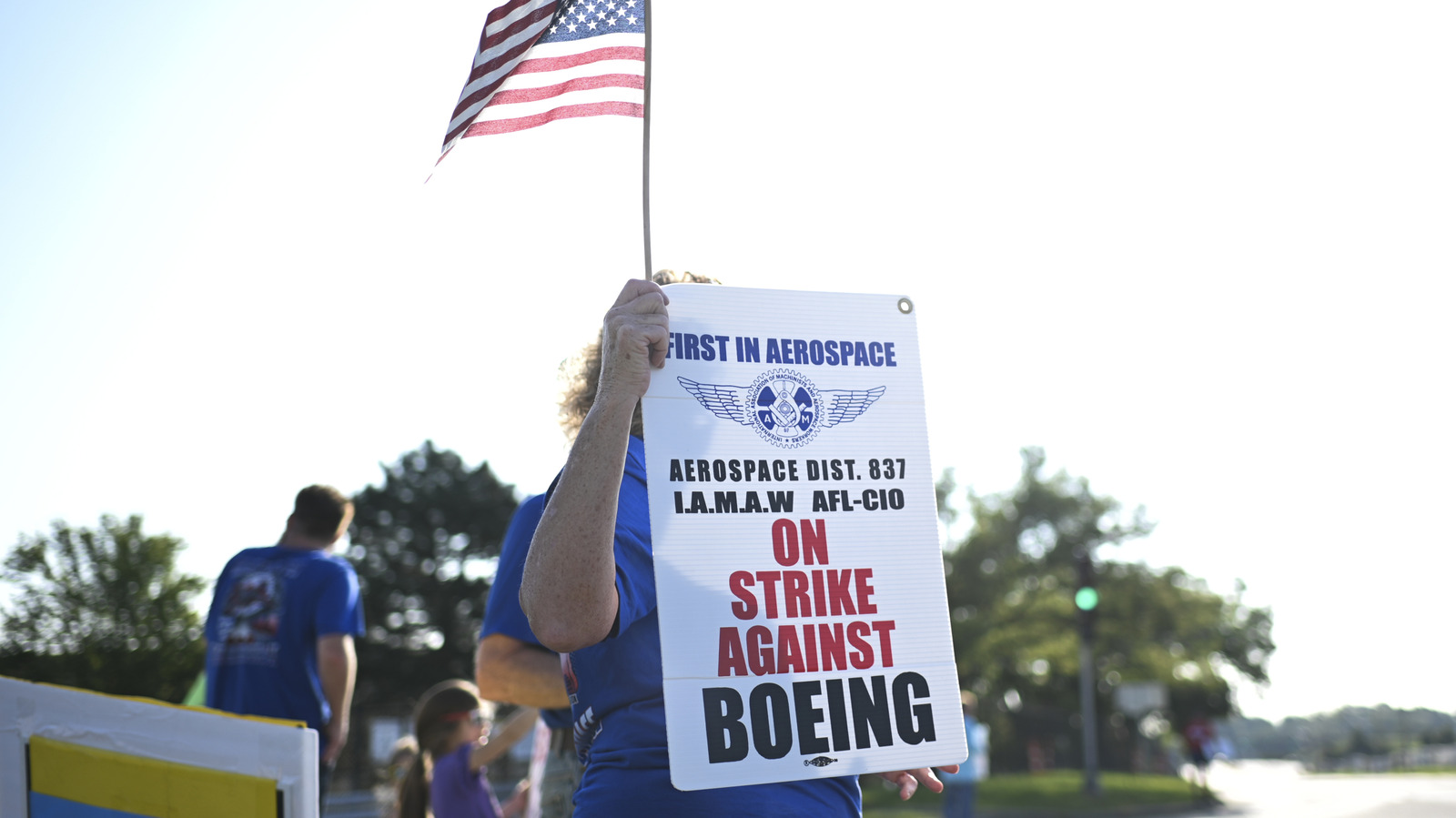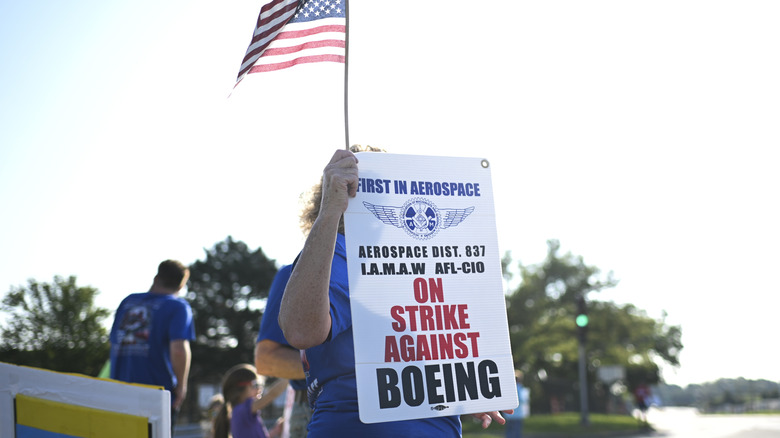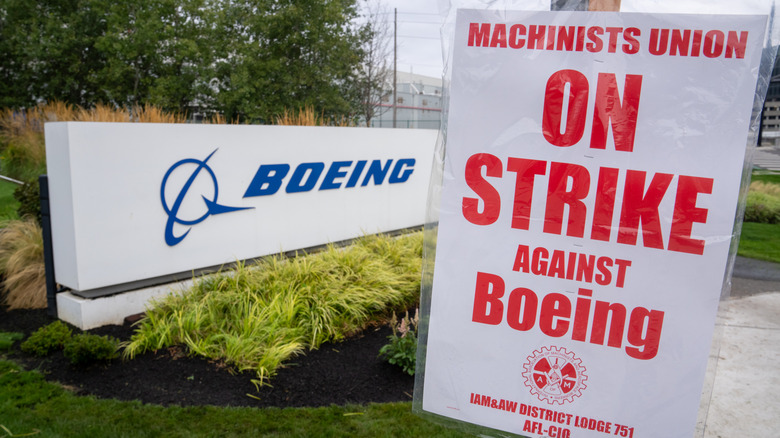The good news is, the union representing Boeing factory workers in St Louis, IAM 837, has voted 90% to approve a deal that would end the seven week long strike they’ve been on. The bad news is, that deal was made unilaterally, as in, Boeing never signed off on it. Now Boeing is insisting that it never will.
This is a bigger deal than just a backlog on some plane deliveries, which is what happened during last year’s strike for Boeing workers on the West Coast. That’s because the St Louis plant produces military aircraft, like the F-15EX and the MQ-25 refueling drone, per Bloomberg. If a resolution can’t be reached, then the inherently slow process of getting new planes into deployment will bog down even further. This is at a time of increased pressure from peer adversaries like China.
The new deal is like the old deal, which is too much
Boeing has made several offers to the union, all of which have been shot down. The latest one would have given workers a five-year contract with a 24% wage increase guarantee and a $4,000 signing bonus. In return, the one-way deal that IAM 837 just passed is for a four-year contract with a 20% increase guarantee plus a $10,000 bonus. The union says that their offer is closer to the deal that was reached in last year’s strike.
That’s technically true, but last year’s deal was quite a bit bigger: a four-year contract with a 38% wage increase guarantee and a $12,000 bonus. From the union’s perspective, it is asking for far less than this deal that was already cut, so Boeing should board the plane, so to speak. From Boeing’s vantage point, last year’s deal was for workers on the West Coast, where the cost of living is far higher and thus workers can command a higher wage. In this sense, the St Louis workers would be asking for comparatively more than their coastal brethren.
All in, Reuters reports that Boeing’s offer would cost the company $30 million, whereas the union’s would cost it $40 million. For a massive aerospace juggernaut, that $10 million gap might not seem like much. But Boeing was in dire financial shape at the end of last year, for a variety of reasons that included the strike. It had to raise $22 billion via a stock offering just to stay afloat (or airborne, I guess) and fend off a credit downgrade. This is a company in penny-pinching mode.
But pinching its own worker’s pennies means that planes aren’t getting made. F-35 orders are already getting canceled as casualties of the trade war. Delaying the production the F-15EX, which America and its allies need to replace aging F-15C/Ds, doesn’t help anything. Hopefully, this strike can be resolved soon.




